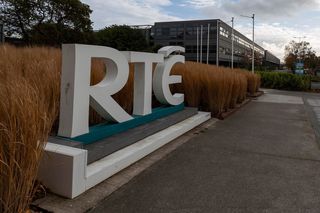Consequences of inaction can only take greater toll
The Government announced its €125bn Climate Action Plan yesterday. Stock image
Plans can reasonably be regarded as merely good intentions unless there is clarity on how to act on them. Governments have spoken volubly of their ambitions and aspirations to combat climate change, but very little of the verbiage translated into movement. There is little to convince that the new €125bn Climate Action Plan can redress the balance.
How many climate conferences have opened with Einstein’s words that the world will not evolve past its current state of crisis by using the same thinking that created the situation? It is no longer new thinking, but new urgency that is required. We know what we have to do; it is when we do it that has become so critical.
Philosopher Arthur Schopenhauer argued that all truth passes through three stages. First, it is ridiculed. Second, it is violently opposed. Third, it is accepted as being self-evident. In terms of global warming, we arrived at the third stage some years back. Self-evident or not, the political will or public appetite to rise to the challenge is still absent.
Climate change demands we do things radically differently. Too often politicians still have feared a backlash for doing what is right but unpopular.
However, the consequences and costs of not changing can now only take a greater toll. All seem agreed we have to save our planet, so long as the bill is met on someone else’s watch. This has been the conundrum the Government was attempting to grapple with, but it looks as if it has been confounded once again.
The fault is not in the boldness of the measures but in the timescales and lack of clarity as to how they might be delivered.
New low-cost loan schemes to retrofit homes, tax incentives and a plan to increase renewable electricity by 80pc are all central to proposals. People will embrace measures providing they are enabled to do so. But they must also be deliverable. If – as is demanded – hundreds of thousands of homeowners are to invest in decarbonising and making their properties more efficient, they are going to need immediate and easy access to finance.
A much bigger retrofit sector will also have to be developed in record time to facilitate this.
So, how we will conjure up about 75,000 B2-equivalent home upgrades annually from 2026 to 2030 to hit the target of 500,000 retrofits will have to be taken on trust.
Our past negligence has left us with a gigantically tall order. Nonetheless, we needed more specifics on how these ambitions might be met. Our lives are going to have to change unrecognisably.
On transport, the plan envisages a cut of between 42pc and 50pc. Agriculture, energy and industry must also be transformed. The aim is to reduce emissions by 51pc by 2030. Easy to say. But as the Irish Congress of Trade Unions has said, the plan will be judged on its “capacity to deliver a genuine Just Transition across the economy and society”. Ordinarily, meeting targets merely demands management. But only leadership, fairness and affordability will ensure the widespread acceptance so desperately needed.
Join the Irish Independent WhatsApp channel
Stay up to date with all the latest news














